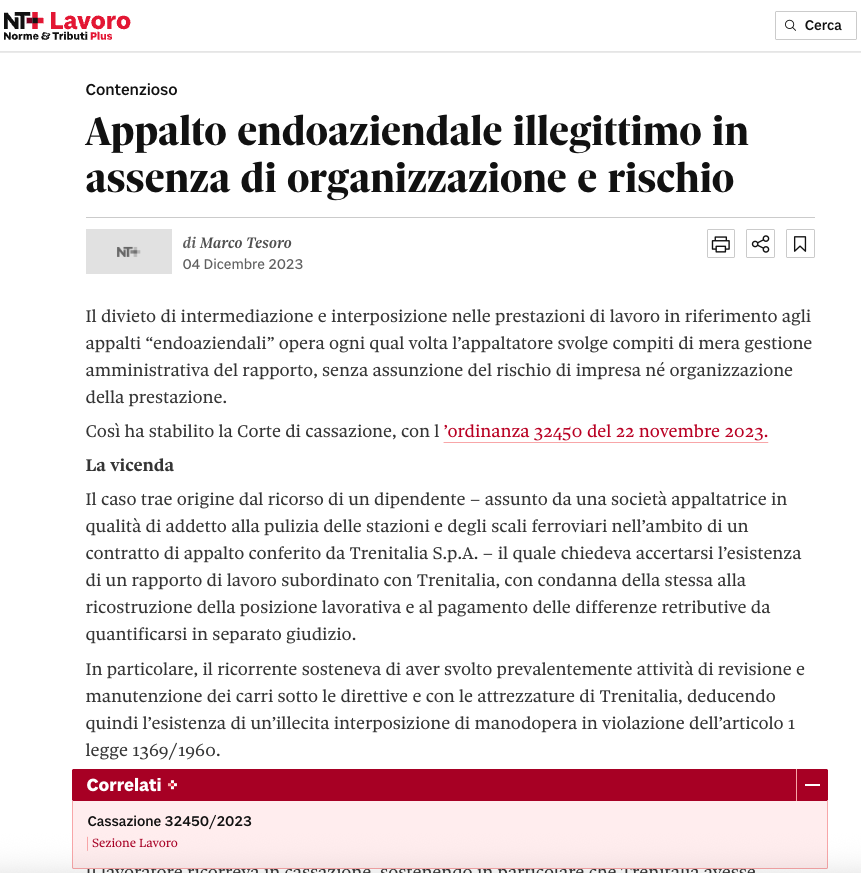Related Posts
Gruppo 24Ore27 May 2024
Ordinary illness protected period inapplicable to disabled employee
Pubblicato su: Il Sole24Ore - Nt Lavoro - 27/05/2024 Leggi qui
Gruppo 24Ore17 April 2024
Reinstatement in case of violation of the repêchage duty
Pubblicato su: Il Sole24Ore - Nt Lavoro - 17/04/2024 Leggi qui


